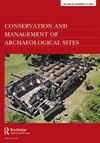将遗产保护与社区发展联系起来:对津巴布韦基层遗产项目作为社会经济发展和可持续遗产保护工具的评估
IF 0.8
4区 历史学
0 ARCHAEOLOGY
Conservation and Management of Archaeological Sites
Pub Date : 2019-01-02
DOI:10.1080/13505033.2019.1596518
引用次数: 5
摘要
本文探讨了将遗产,特别是考古遗产与个人和社区经济发展联系起来的实际问题。近年来,人们越来越认识到,包括文化遗产在内的文化既可以推动经济发展,也可以促进经济发展,尤其是在发展中国家。然而,很少有文献证明这种论点的有效性。本文探讨了一些实际例子,说明在津巴布韦,个人和社区如何在基层试图开发考古遗产以及其他文化和自然遗产资源来创收。该文件的主旨是评估此类企业的使用方式和可行性。由于考古遗产创收和支持遗址周围人们的能力直接影响着这些遗产的长期生存,因此,本文最终有助于讨论遗产与经济发展之间的联系以及可持续遗产保护的主题。本文章由计算机程序翻译,如有差异,请以英文原文为准。
Linking Heritage Preservation and Community Development: An Assessment of Grassroots Heritage Based Projects as Vehicles for Socio-Economic Development and Sustainable Heritage Preservation in Zimbabwe
ABSTRACT This paper engages the practical aspects of linking heritage, in particular, archaeological heritage, with both individual and community economic development. In recent years, there has been growing realisation that culture, inclusive of cultural heritage, can be both a driver and an enabler of economic development, especially in developing countries. However, few documented examples demonstrate the validity of such arguments. The paper explores some practical examples of how, at the grassroots level, individuals and communities are attempting to exploit archaeological heritage sites as well as other cultural and natural heritage resources for income generation in Zimbabwe. The major thrust of the paper is to assess the manner of use and the viability of such ventures. Since the ability of archaeological heritage to generate revenue and support people around the sites has a direct effect on long-term survival of such heritage, ultimately, the paper contributes to the discourse on linking heritage and economic development as well as the theme of sustainable heritage preservation.
求助全文
通过发布文献求助,成功后即可免费获取论文全文。
去求助
来源期刊

Conservation and Management of Archaeological Sites
ARCHAEOLOGY-
CiteScore
0.40
自引率
0.00%
发文量
1
期刊介绍:
The journal Conservation and Management of Archaeological Sites (CMAS) has established itself as the primary reference in this field, both for active professionals and for university teachers and students. Launched in 1995, it is the only journal that covers both theoretical and practical issues in heritage site management and conservation. Peer-reviewed papers from around the world report on new thinking and best practice in site management and conservation. Topics covered include: •Cultural, social, ethical and theoretical issues in archaeological site management and conservation •Site management •Historical documentation and condition reporting •Site deterioration and environmental monitoring •Preventative conservation, including reburial and protective sheltering of sites •Building materials analysis and treatment •Restoration and reconstruction of buildings •Visitor management and sustainable tourism •Site interpretation •National and international legislation and charters
 求助内容:
求助内容: 应助结果提醒方式:
应助结果提醒方式:


